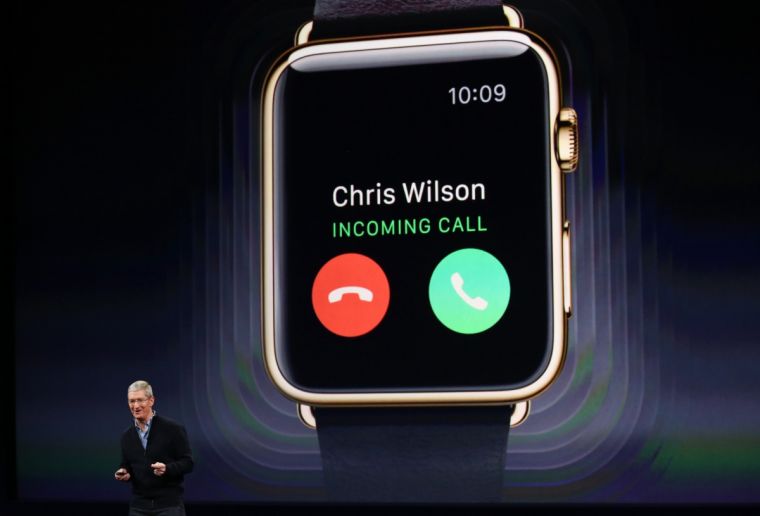Three things the church can learn from the Apple Watch

Did we just move one step closer to becoming cyborgs? On Monday Apple unveiled more details of its much anticipated watch. British designer Sir Jonny Ives has described it as Apple's most personal product and he has a point. This watch tracks your heartbeat and touches and prods you to alert you of changes in your life. As an innovation, it certainly crosses a new line.
After selling 700 million iPhones and seeing year on year growth in sales of mobile phones of 49 per cent, Apple has become the most valuable company in the world by market capitalization - it is worth $737 billion (which eclipses the total value of the Russian Stock Market). Apple has been looking for a new line of products to its their growth and Apple Watch is an ideal opportunity, which some believe will help it become the world's first Trillion dollar company. So what can this new product teach the church?
1. Adaptability
As usual Apple is not the first company to the market with a product - there were MP3 players available well before the iPod, there were laptops available before the MacBook. Apple are not the most creative company in the world, but they are great innovators. They take someone else's ideas and often make them better. Historically the church has done a great job of connecting with new technologies. The Roman roads of the ancient world were borrowed by the early church to spread the Gospel around the world! Centuries later an early use of the printing press was the dissemination of the pamphlets for the Protestant Reformation. Rather than fearing technological changes, the church needs to follow those early examples and recognise that, like Apple, we don't need to have invented a technology in order to make innovative use of it.
2. Empathy
Even those of us who use Android products can recognise that the user experience is something that Apple excels at. Right from the beginning one of Apple's strengths has been to learn how to see things not from the designer's point of view, but the user's perspective. When Apple were first bringing innovation in the personal computer industry they found a way to get out of the technical mindset that required users to learn about programming or the inner workings of the computer and instead connected with the vantage point of an average person and build a operating system that they would intuitively know how to use.
For a long time now Apple products have done without the need for an instruction book. In order to develop these kinds of products Apple designers demonstrate an unusual amount of empathy with their customers. Through extensive research and continual development they have developed a high degree of understanding of how people use their products in real life. Sadly too often our churches assume that we need to continue doing what we have always done in the way we plan our services, design our buildings and communicate the gospel. Rather than exhibiting empathy and great value towards those we seek to reach, we continue to alienate outsiders by expecting people to deal with us on our terms.
3. Beauty

Apple loves to tell you how beautiful its products are. There is something almost worshipful about the hushed tones of the voiceover for the new Apple watch video. We are told about the precision of the design, the quality of the materials and the tactile qualities of the devices. Apple has created something that they are proud of, they want their products to not just be useful but beautiful, they care about appearances but also about the simplicity and efficiency of their internal components too. Sometimes the church becomes oblivious to the senses. We make the gospel about our minds and our souls but have little to say about the body. I think we need to draw on the beauty of creation, and harness the creativity of our artists and poets to help our congregations catch something of the majesty and transcendence of God through their senses, not just their intellects.
Dr Krish Kandiah is a Christian Today contributing editor, president of London School of Theology and founder and director of Home for Good. Follow him on Twitter @krishk











